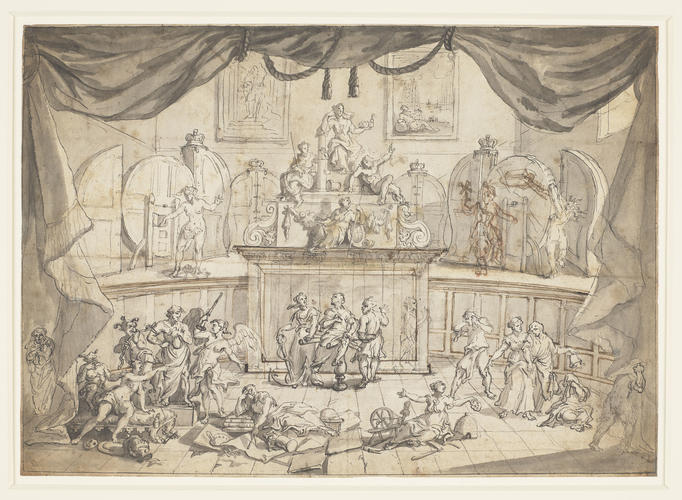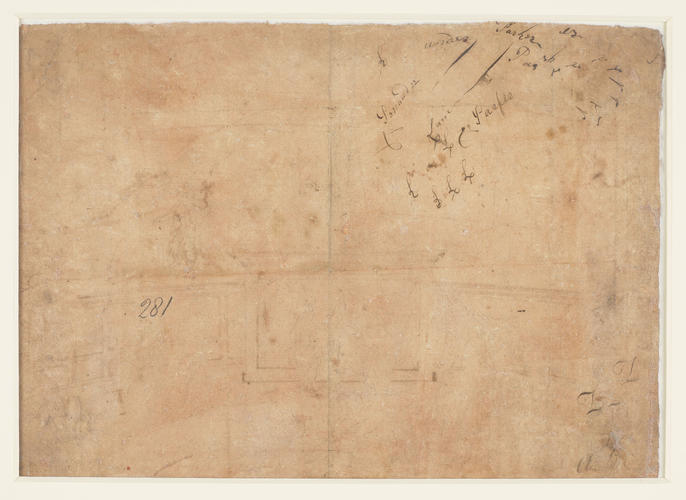-
1 of 253523 objects
A study for The Lottery 1724
Pencil, pen and ink, grey wash and red chalk | 22.9 x 32.4 cm (sheet of paper) | RCIN 913481

William Hogarth (1697-1764)
A study for The Lottery 1724

William Hogarth (1697-1764)
A study for The Lottery 1724


-
A pencil, pen and ink and wash drawing showing the interior of the Guildhall, with an upper tier on which two lottery wheels are placed. Various allegorical figures populate the scene. A figure has been added in red chalk and brown ink in the upper tier. Incised in places with the stylus.
This preparatory drawing is for William Hogarth's print The Lottery, published in 1724 as a follow-up to The South Sea Bubble in 1721, and is intended as a satire of the state-sponsored lottery systems that had been supported by Parliament from the early eighteenth century as a way of generating additional public income.
The various allegorical figures populating the scene illustrate the folly and danger of this form of gambling. On the central podium are figures presenting the possible benefits of the lottery: Public Credit, Apollo, Justice and Britannia, but below are figures torn between virtue and the dangerous moral and financial risks of taking part. The central group on the floor shows Suspense, torn between Fear and Hope (with the anchor). At lower left is the figure of Good Luck (with the money pouch, and on a pedestal), tempted by Pleasure (reclining on a couch, with a devil), with an impish Folly tugging on a ribbon tied to his arm, while the winged Fame tries to steer him towards the figure of the Virtue and the Arts. On the other side, Misfortune has drawn a blank ticket, and is comforted by Minerva, who points to Industry (signalled by the beehive and spinning wheel), but is pulled down by Grief, and distracted by Despair and Fraud, leaning out of a window behind. The two figures drawing tickets from the lottery wheels are a blindfolded Fortune, and Wantonness, here added in brown ink, and Sloth and Avarice draw back the framing curtains.
The Royal Collection holds various impressions of the print (811313-811319).Provenance
Coll. Standly (sale 1845, lot 1119; Colnaghi (bought £7); acquired by Queen Victoria
-
Medium and techniques
Pencil, pen and ink, grey wash and red chalk
Measurements
22.9 x 32.4 cm (sheet of paper)
Object type(s)
Subject(s)
Other number(s)
RL 13481